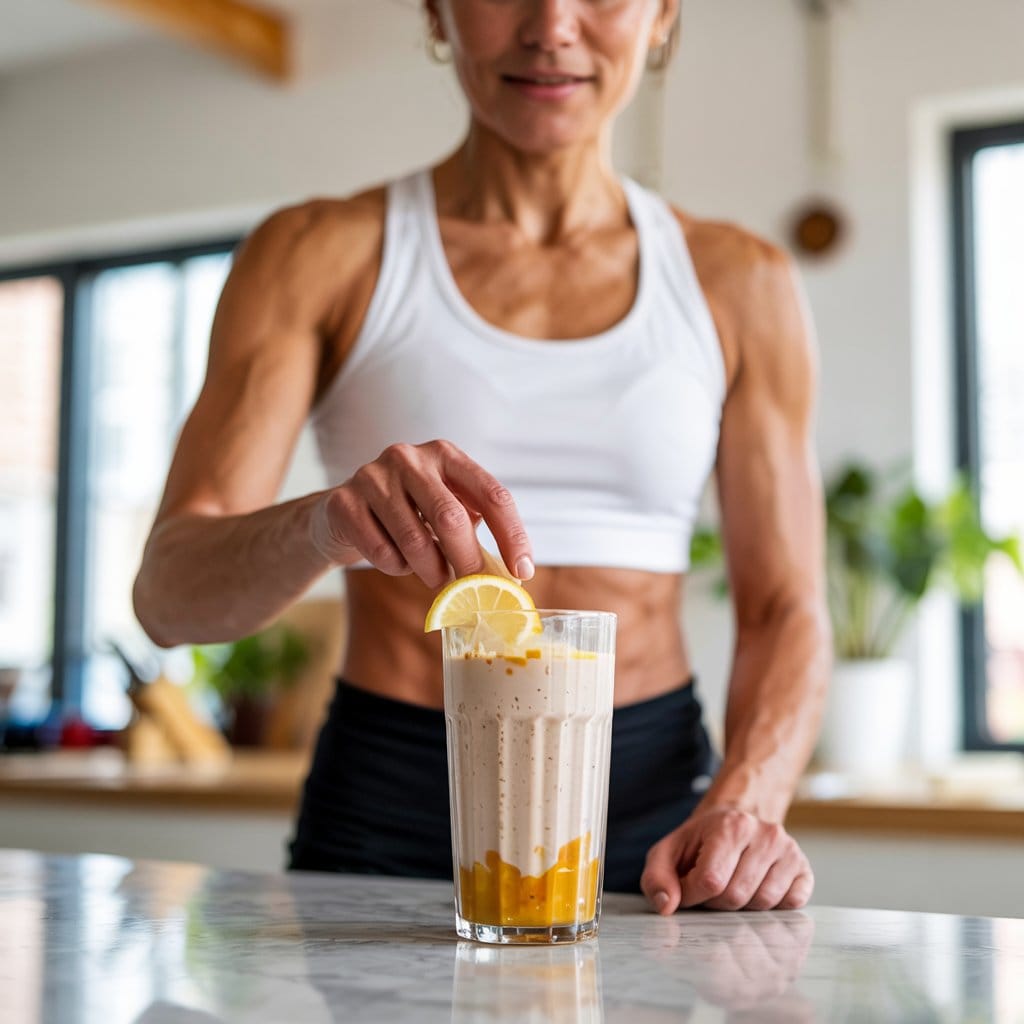FREE SHIPPING OVER $50
Milk vs. Water for Protein Shakes: Which Helps Build More Muscle?
If you’ve ever stood in your kitchen, protein powder in hand, wondering whether to mix it with milk or water, you’re not alone. It’s a common question for anyone trying to optimize muscle growth and recovery. The answer? It depends on your fitness goals, dietary needs, and how your body responds to certain nutrients.
Let’s break down the science and practical considerations behind each option—so you can make the best choice for your body and your muscle-building goals.
Understanding the Basics: What Happens When You Drink a Protein Shake?

A protein shake delivers amino acids—the building blocks of muscle—into your bloodstream, helping repair and rebuild muscle tissue after workouts. The liquid you choose to mix with your protein powder impacts how quickly it digests, how many calories you consume, and what other nutrients come along for the ride.
Water is calorie-free and digests quickly. Milk, on the other hand, adds protein, carbs, fats, and extra calories that can either support or derail your goals depending on your strategy.
Protein Content: Does Milk Offer an Advantage?
Milk contains two main proteins—casein and whey. When you add your protein powder to milk, you’re giving your body extra protein beyond what’s in the scoop.
- 1 cup of milk (8 oz) adds about 8 grams of protein.
- This means a typical 25-gram protein shake becomes a 33-gram shake when mixed with milk.
That extra protein may be useful if you’re looking to increase total daily protein intake or support more intense muscle growth. However, more isn’t always better—it has to match your overall calorie and macro needs.
Caloric Considerations: Milk Adds Fuel, Water Keeps It Lean
When choosing between milk and water, think about your current goals:
- Trying to build muscle or bulk up? Milk can help you add more calories and nutrients without needing extra food.
- Trying to lose fat while preserving muscle? Water keeps your shake lower in calories and may be better for staying in a calorie deficit.
To compare:
- Water = 0 calories
- Whole milk (1 cup) = ~150 calories
- 2% milk (1 cup) = ~120 calories
- Almond milk (unsweetened) = ~30-40 calories
Depending on the type of milk, you’re potentially adding 30 to 150 calories to every shake. Multiply that by 1–2 shakes a day, and it adds up quickly.
Nutrient Density: Milk Brings More Than Just Protein
Milk is a whole food. Along with protein, it offers:
- Calcium for bone strength
- Potassium for muscle function
- Vitamin D (in fortified milk)
- B12 and other micronutrients
If you’re looking to boost your overall nutrition, milk may give your shake a helpful upgrade—especially if your diet lacks these nutrients.
Digestion Speed: Fast vs. Slow Absorption
When you mix protein powder with water, it’s digested faster, especially if it’s whey protein. This rapid absorption is ideal after a workout when your body is primed to take in nutrients.
Milk, particularly because of its fat and casein content, slows digestion. That’s not always a bad thing—slow-digesting proteins can help keep you full and release amino acids over a longer period.
Summary:
- Water = fast absorption, great for post-workout
- Milk = slower absorption, better for satiety or before bed
Lactose and Tolerance: Can Your Gut Handle It?
Some people experience bloating, gas, or digestive upset after drinking milk. This can be due to lactose intolerance, which affects up to 65% of the global population.
If milk makes you uncomfortable, it’s better to stick to water or lactose-free alternatives like:
- Lactose-free milk
- Unsweetened almond milk
- Oat milk
- Soy milk (which also adds protein)
Digestive health plays a huge role in nutrient absorption—so if milk bothers your stomach, it’s not helping your muscle gains.
Taste and Texture: Does It Matter?
From a flavor standpoint, milk wins hands-down for most people. It gives your protein shake a creamy, satisfying texture and tends to mask chalky or artificial flavors better than water.
But if you’re short on calories or want something more refreshing post-workout, water might be your go-to.
You can also get creative: mix your shake with half water and half milk to strike a balance.
Timing Is Everything: When to Choose Milk vs. Water
Here’s a simple way to decide based on when you’re drinking your shake:
- Post-workout: Water is ideal for faster digestion.
- Meal replacement or snack: Milk can make your shake more filling.
- Before bed: Milk (especially with casein protein) slows digestion and supports overnight muscle repair.
- During a cut or fat-loss phase: Stick to water to save calories.
- During a bulk or muscle gain phase: Milk adds helpful calories and nutrients.
Muscle Building Potential: So, Which Is Actually Better?
Ultimately, both milk and water can help you build muscle—but in different contexts.
- If you’re getting enough calories and protein from food, water is a clean, efficient way to supplement.
- If you’re struggling to eat enough to support growth, milk can provide extra fuel and protein to push you into a surplus.
Remember, the biggest factors in muscle gain are total protein intake, workout consistency, and recovery—not just what you mix your powder with.
The Verdict: What’s Best for You?
There’s no one-size-fits-all answer—but here’s how to make your decision:
- Choose water if:
- You’re cutting calories
- You want fast digestion after workouts
- You’re lactose intolerant
- You prefer a lighter drink
- Choose milk if:
- You’re bulking or have a high-calorie target
- You want extra protein and nutrients
- You enjoy a creamier taste
- You’re using your shake as a meal replacement
Conclusion
Whether you’re training for size, strength, or fat loss, the liquid you mix with your protein shake matters more than you might think. Water offers fast, calorie-free absorption—perfect for lean gains. Milk delivers added protein, calories, and nutrients, ideal for muscle building and overall nutrition.
Choose the one that aligns best with your goals, and don’t forget: consistency in training and nutrition always wins.
Related Articles
- We Tried 17 Protein Powders—These 7 Are Actually Worth Your Money
- Top FODMAP-Friendly Protein Powders and Meal Replacements You Need Now
- Try These 5 High-Protein Smoothie Ingredients Instead of Protein Powder
- This High-Protein Snack Can Help Lower Your Cholesterol, Say Dietitians
- The Unexpected Ingredient I Added to My Eggs That Boosted My Protein Intake







